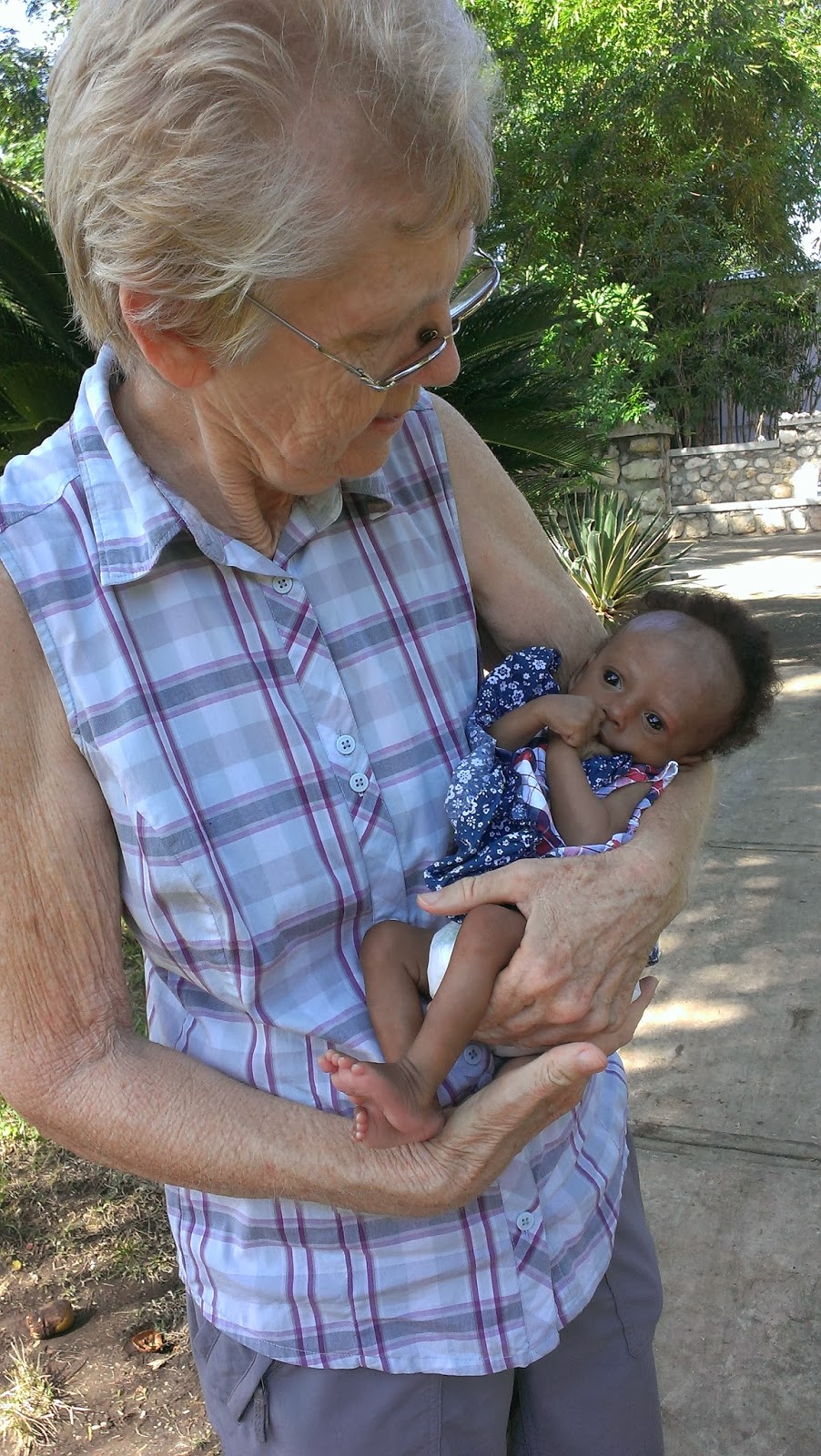 |
| Rose at four months |
A conversation with Sue at lunch one day provided a look into
 |
| Rose at four months |
Earlier this month, Sue received a newborn baby just 10 days old. The mother brought the baby and gave her to Sue. “Just like that?” I asked Sue, “No regrets, no explanation?” “Oh, I already have two of her babies from before”, Sue explained. I was stunned. Two babies already? “Oh, yes”, Sue said. “The mother was not going to feed her. If I did not take this baby, she’d be dead in less than a week.”
Sue went on to explain that the mother had tried to abort this pregnancy twice using drugs she bought on the street. Abortion is illegal in Haiti so young women and girls turn to herbal concoctions and drugs that are readily available on the street. As a result, post-abortion complications have become an emerging public health problem in Haiti accounting for as much as 30% of maternal deaths. NPR’s Michel Martin interviewed Jacqueline Charles, of the Miami Herald, about the issue back in December
(http://www.npr.org/templates/story/story.php?storyId=248990602). Contraception is available in Haiti, but is not widely available. So against this backdrop, the babies, like baby Rose, keep arriving at orphanages like Sue’s.
 |
| Rose at seven months |
Today, Rose is almost seven months old and weighs about 10 pounds. Rose is doing very well. She has a home. She is well fed. She receives medical attention when she needs it. She will go to school when she is older. Rose is loved. Rose is at Sue’s orphanage. Of all the babies born every day in Haiti, Rose is one of the fortunate ones.
Post Script to Baby Rose
I asked Sue about the other children at her orphanage. Most of her kids eventually are adopted. All but a few of her current 26 children are in the process of being adopted. But not Baby Rose. It is too soon. Her mother may still come back for Rose. I doubt it.
Post Script to Baby Rose
I asked Sue about the other children at her orphanage. Most of her kids eventually are adopted. All but a few of her current 26 children are in the process of being adopted. But not Baby Rose. It is too soon. Her mother may still come back for Rose. I doubt it.
Do any of the children get put up for adoption, or do they stay in the orphanage forever?
ReplyDelete